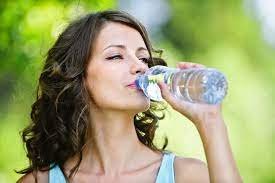It’s easy to become dehydrated without even realising it. Learn about the signs of dehydration and discover 5 top tips on drinking enough water.
Water is essential for our survival. Most people can only live without it for a few days, which is not surprising given water makes up two thirds of the human body.
Dehydration is the term used when the body lacks enough water to work properly. If dehydration is allowed to continue it can lead to serious health problems, including heart conditions. Read on to learn about the signs of dehydration, the benefits of staying hydrated, and top tips for drinking the recommended 6 to 8 glasses of fluid a day.
What are the signs of dehydration?
Dehydration can be mild, moderate or severe, depending on how much water the body is lacking. An early symptom to look out for is thirst, which is your body’s way of telling you that you need to drink water or other fluids. Another sign is when your pee becomes darker than usual.
Other signs of dehydration include:
- feeling dizzy or lightheaded
- feeling tired or weak
- headache
- a dry or sticky mouth
- sunken eyes
- peeing less often than usual.
When you notice these signs, it’s important to start drinking more fluids – this can be water or other healthy drinks – so you can correct any dehydration.
However, there are times when dehydration is so serious that the only way to correct it is by going to hospital and being treated with a ‘drip’ that quickly puts fluid directly into your body. Seek medical advice if you experience the following symptoms of severe dehydration:
- confusion or drowsiness
- severe dizziness or fainting
- not peeing at all for more than 8 hours
- having a weak or rapid pulse.
What are the common causes of dehydration?
Anything which triggers the body to lose more water than usual, or to take in less water than we need, can cause dehydration. These include:
- becoming less sensitive to the body’s thirst signals as we get older
- losing fluids due to diarrhoea and vomiting
- sweating more than usual, such as due to a fever or exerting yourself in hot, humid weather
- making too much pee, such as due to diabetes, drinking alcohol, or taking medicines called diuretics.


